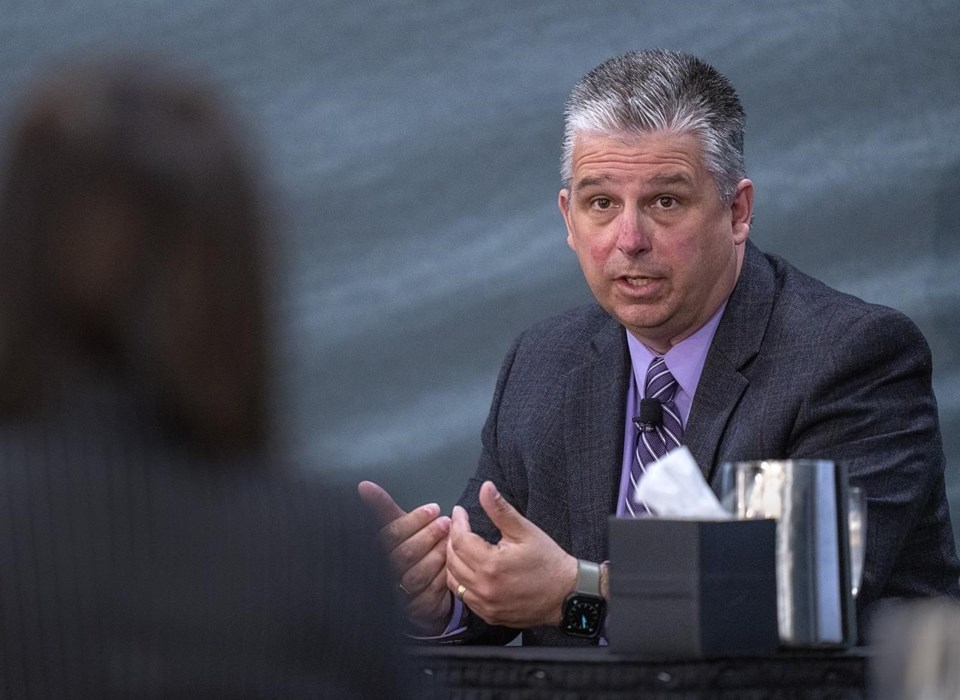HALIFAX — A former fire chief says he has concerns about Nova Scotia's plan to create a volunteer corps of civilians to provide help during major emergencies.
Terry Canning, a director with the Fire Service Association of Nova Scotia, told a legislative committee Tuesday that plans to establish the Nova Scotia Guard sound like a good idea, but he's worried the province is moving too fast.¬Ý
"I have some serious and grave concerns that we might be jumping into something without considering all of the ramifications of it," he told the all-party committee. "But I think we can prevail and make something good come out of it."
Still, Canning says it remains unclear how the new body will affect shortages of resources during emergencies. "I think that's one of the $64,000 questions," he said.
Rod Nielsen, fire chief in Brookfield, N.S., was noncommittal when asked what impact the Nova Scotia Guard could have on the recruitment of volunteer firefighters. "Time will tell," said Nielsen, a former president of Fire Service Association of Nova Scotia. "There's so much unknown with the N.S. guard."
The government has promised consultations with interested groups and municipalities this summer, which Canning welcomed. "The possibilities that it presents are good for the province, and I'm hoping that we can work together and make it happen," he said.
In March, Premier Tim Houston said the Nova Scotia Guard was needed because climate change has led to more frequent and intense natural disasters, including increasingly dangerous and damaging floods, hurricanes and wildfires.
Paul Mason, executive director of the province's Emergency Management Office (EMO), told the committee that the emergency response model that has served Nova Scotia for decades needs an upgrade to deal with these increased risks. That's why the government is also creating a new Department of Emergency Management, which will replace the EMO and oversee the guard corps.
"The events of the past five years have made it abundantly clear that Nova Scotia can expect more frequent and intense hazards caused by climate change," Mason told the committee, adding that the province also has to worry about more cyberattacks and supply-chain disruptions.
A series of punishing thunderstorms dumped up to 250 millimetres of rain on parts of Nova Scotia during a 24-hour period last July, killing four people and damaging infrastructure across the province. And in May and June of last year, nearly 25,000 hectares of land was scorched by record wildfires that destroyed 200 homes and forced about 18,000 people from their homes.
In the past, the EMO's provincial co-ordination centre was activated for emergencies an average of once or twice a year, Mason said. Last year, it was activated nine times.
Mason said the Nova Scotia Guard will "better position us as a province to respond to these kind of things." And he pointed to similar "civilian workforces" being established in Ontario, Quebec and British Columbia.
But some volunteer search and rescue organizations have pushed back against the plan, saying they weren't consulted about a new body of volunteers that could drain money and resources from existing volunteer groups.
Last month, Sherry Veinot, the president of the Nova Scotia Ground Search and Rescue Association, said it's not clear how the province's 23 volunteer search and rescue teams will fit with the Nova Scotia Guard. Veinot said the existing search and rescue groups need more funding to handle a rising number of natural disasters.¬Ý
"There are still a lot of discussions that have to happen because we are still so new with this idea," Veinot said at the time.¬Ý
This report by The Canadian Press was first published May 7, 2024.
Michael MacDonald, The Canadian Press




